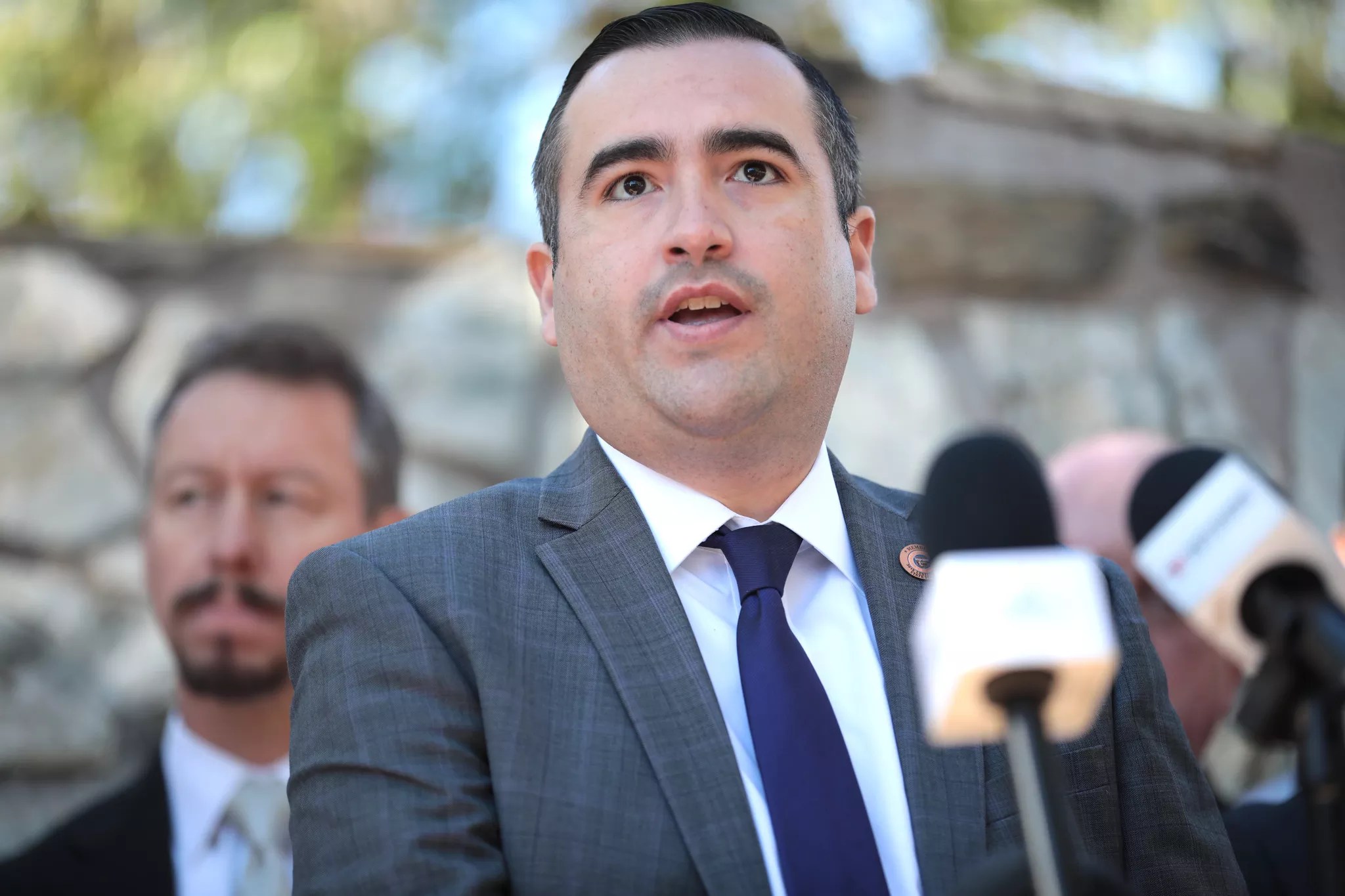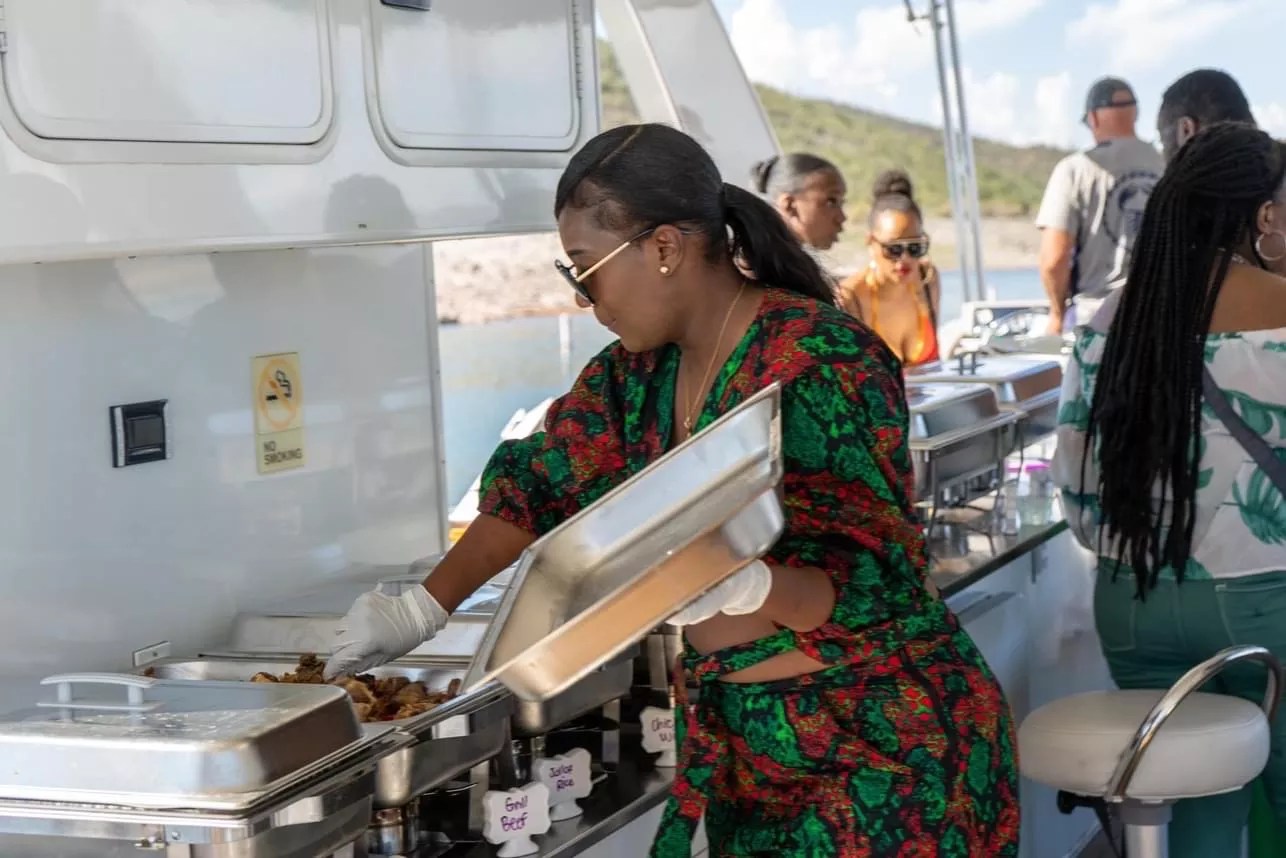
Gage Skidmore/Flickr/CC BY-SA 2.0

Audio By Carbonatix
In a week filled with celebration and time with loved ones, Republican state Sen. T.J. Shope couldn’t get through the holiday season without posting something racist.
On Thursday, Shope, who represents parts of Pinal, Pima and Maricopa counties, posted a photo of Gov. Katie Hobbs’ Kwanzaa display at the Capitol. Above it, he labeled the African American holiday a “fake anti-American, anti-Christian ‘holiday.”
Yes…a fake anti-American, anti-Christian “holiday” celebrated by our Governor in AZ… https://t.co/cQfbozZfYx pic.twitter.com/eR1k32xmac
— T.J. Shope (@TJShope) December 26, 2024
Shope did not immediately respond to Phoenix New Times’ request for comment. Darlene Little, the owner of Afri-Soul Education Center, a Black business incubator and community hub for arts and culture, set up a Kwanzaa display at the Capitol last year. One of its businesses put up the display in 2024.
“It’s just informative for people who want to hear it,” Little said of the displays. “Nobody makes you go. Nobody makes you listen.”
Kwanzaa is not a religious holiday. It was created in 1966 by author and activist Maulana Ron Karenga, the current chair of the Africana Studies department at California State University, Long Beach. Kwanzaa is a cultural holiday during which African Americans celebrate their culture, including the principles of unity and self-love.
Each day of Kwanzaa, which spans from Dec. 26 to Jan. 1, Afri-Soul celebrates by gathering community members and lighting a candle that begins a discussion about the “thought for the day” or about the corresponding seven essential principles of Kwanzaa. Attendees then eat a little food and “that’s about it,” said Little. The final day culminates in a communal feast.

Lasgidi Cafe owner Patience Ogunbanjo called state Sen. T.J. Shope’s post about Kwanzaa “dismissive” and “a bit prejudiced.”
Patience Ogunbanjo
Little chose not to get worked up about Shope’s comments. “That’s his personal opinion, and he has a right to it,” she said, noting that “African Americans no longer need Anglo people to co-sign everything that we do, or approve it or even understand it.”
But Patience Ogunbanjo, who owns the Nigerian food truck Lasgidi Cafe, called Shope’s post “dismissive,” “a bit prejudiced” and said it “could be defined as racist.” She said, “It reflects the misunderstanding of the profound culture and the cultural significance of Kwanzaa for a lot of African Americans, not only in Phoenix, not only in Arizona, but across the United States.”
As for the idea that Kwanzaa is somehow anti-Christian, Ogunbanjo noted that Kwanzaa is not considered a substitute for religious holidays such as Christmas. Instead, she and Little stress that the celebration is meant to uplift the values in African American and Black communities.
“It’s a community celebration about life, love and culture,” Little said. “I don’t know how anybody can be opposed to that. You don’t have to celebrate it. You don’t have to see it. You don’t have to do anything with it.”
If you do want to celebrate it, though, you’ll have that opportunity in Phoenix this year. Afri-Soul is hosting its first Kwanzaa Cultural Festival from 11 a.m. to 3 p.m. on Saturday in its parking lot, located downtown at 1145 E. Washington St.
“It’s past due time,” said Obunbanjo, who is an event organizer.